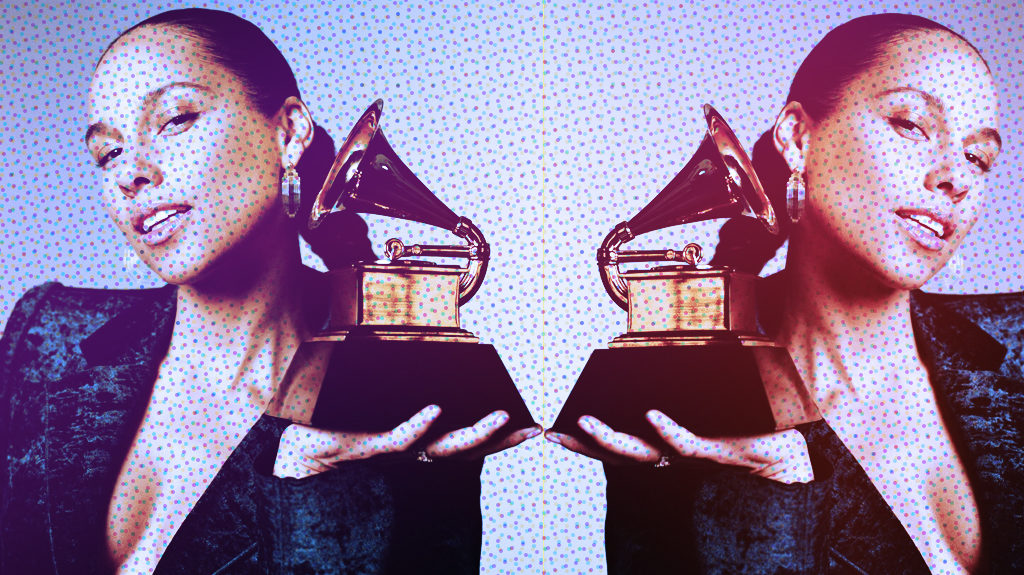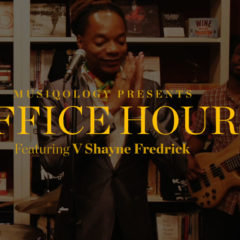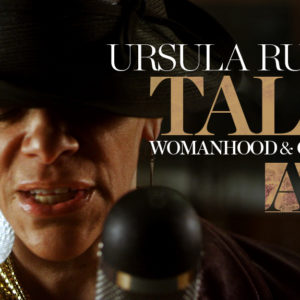The GRAMMYs, music’s self-declared “greatest night” will return to TV screens this weekend, airing Sunday on CBS at 8PM. MusiQology managing editor John Vilanova, who’s been hard at work on a PhD dissertation that examines the awards’ record on race throughout their sixty-year history, offers a key of what to watch for on Sunday, February 10.
It’s GRAMMY time again! The night will feature the usually high number of performances (22 this year), along with the presentations of a set of awards that allege to honor, in the words of the GRAMMY Credo, “sheer artistry, and artistry alone—artistry in writing, performance, musicianship and engineering”—without reference to album sales or popularity.
The GRAMMYs have been a big deal in these parts, where year after year we try to contextualize them within a larger critical music industry studies framework that suggests the awards contain within them many of the internecine politics of the industry, specifically as it relates to broadly and deeply held ideas about “great” music and the broader question of who gets to make “art.”
Thankfully, a lot has changed (for the better) since we castigated them in 2016 for being emblematic of the “structural limits of black excellence.” The GRAMMYs have taken an intersectional accounting after our comments here and elsewhere combined with outgoing president Neil Portnow’s concerning “women need to step up” comments after the 2018 awards produced a dearth of women winners during the telecast prompted many more calls for reform. High-powered lawyer, Time’s Up Legal Defense Fund leader, and former Michelle Obama chief-of-staff Tina Tchen has headed a Task Force on Inclusion and Diversity that has worked with a number of high-powered industry voices to address structural issues in-built in the GRAMMYs’ ten-thousand-plus member voting body through registration drives and listening sessions where artists facing alterity get a chance to make clear the particular strictures of their precarity within the industry itself.
But sadly, as much as change, a number of issues remain: Namely the disturbing lack of wins for black artists in the major, non-genre General Field categories of Album, Song, and Record of the Year alongside Best New Artist. No black artist has won Album of the Year since 2008. One black artist has won Song of the Year since 2004. One black artist has won Record of the Year since 1996. These results—at a time when hip-hop is the highest-consumed genre of music in America—suggest an awards show and, by extension, an industry in which many of its major figures are associated with the awards, that is still resistant to the broader idea of black music-making as measuring up to music made by non-black artists.
Before the show begins, we thought we’d run through some of the relevant plot points to follow, both regarding the nominees themselves and the continuation of larger discussions around the show.

Alicia Keys is the Perfect On-Paper Host
Black? Check. Woman? Check. Deferential to the GRAMMYs? Check. A record of success? Check. Alicia Keys is a dream host for the awards in an era when hosting gigs have become sources of major controversy. She’s the first female host since the early Aughts after taking the reins from LL Cool J, and she’s even won a General Field award, for Song of the Year “Fallin’” in 2001, her only win among her 15 trophies in a non-black field. The question to watch is a straightforward one: To what extent will Keys, who has been outspoken in the past about issues of racism and the President (two issues the GRAMMYs were loathe to tackle in the past)?
Absence Makes the Ratings Wander?
Kanye West’s Twitter account is a source of much frustration for us these days, but he had a point in a recent tweet, suggesting, “We the people need to see Future at the Grammys… We need to see Young Thug at the Grammys. Not just me and Jay [Z] in a suit.” Drake was even more pointed in 2017, arguing that he’d skipped the awards because of a lack of diverse representation in the awards chosen to air on the broadcast given the vast majority of awards are handed out off-screen. News broke earlier this week that Ariana Grande would no longer be attending the awards after a producer “insulted” her during talks about her performance. Even Taylor Swift, GRAMMY darling, won’t be in attendance. After the Super Bowl generated record-low ratings, the star power of the awards is a bit lower than usual, and it will be very interesting to see the final numbers after the telecast airs. With so many industry gateholders in attendance, artists often rely on the GRAMMYs to gain access and prestige for more work to come. But more broadly, artists have suggested the show does not hold the sway it once did, as their brands are bigger in many cases than any label or trophy. Will artists continue to view attendance as compulsory in years when they’re nominated? And if not, how will that impact the show’s bottom line?
End of an Era
Alongside President Neil Portnow, producer Ken Ehrlich will also be working his final GRAMMY Awards. The head of AEG Ehrlich Ventures, a subsidiary of the second largest presenter of live music and entertainment after the giant Live Nation, Ehrlich has produced the TV special since 1980. After the lamentably inappropriate and ill-timed “step up” comments from Portnow last year alongside rumored feuds with Lorde last year and Ariana Grande ahead of this year’s ceremony, perhaps it is time for these two men, who were both born a decade before the GRAMMYs themselves to step aside.

Expanded Nominees Lists: No Big Deal?
This year, the General Field increased their final nominee-lists from five to eight, meaning Album, Song, and Record of the Year each has eight possible winners. Recall what we wrote in the fall upon the announcement, calling it “half-measures, reciprocally rewarding choices that suggest an industry picture more optimistic than its reality. Increasing the field of nominees does allow more artists a chance to add the “GRAMMY-nominated” prefix to their public profile, but it also means the artists will likely perform at the awards, creating the image of a diverse GRAMMYs in which the final results—if past years are the template—remain stubbornly conservative. More non-white and non-male nominees paints a picture of representational diversity that belies a decade in which nomination is seen as a victory for these artists even if they lose out.”
What Kind of Black Artist can Win?
Perhaps the most fascinating thing to be watching for here is something that I hinted at in an article this past year titled “What if Childish Gambino Wins the GRAMMY for Album of the Year?” His album Awaken, My Love! was a fascinating pastiche of funk, soul, and hip-hop, and his candidacy rested upon the idea that the album was somehow auteurist or “different.” Unlike the work of Kendrick Lamar (which was recognized by the Pulitzer folks as “vernacular”), this was an artistic statement. The four black acts nominated—Cardi B, Drake, Janelle Monae, and Lamar (who is nominated for the Black Panther soundtrack—straddle that dichotomy, where the former two are conventional hip-hop albums while the latter two are more conceptual black music. A win by either of the latter would fit into a larger trajectory that goes all the way back to Stevie Wonder, the first black artist to win Album of the Year: Oftentimes black artists win for work that feels outside “conventional” black music being made at the time. Wonder’s work stood head-and-shoulders above his Motown contemporaries. 2004 winners Outkast created a pop sensation, straddling the strangeness of Speakerboxxx with the base of The Love Below. The last black artist to win Album of the Year was jazz legend Herbie Hancock, who won for an album of covers of the white folk singer Joni Mitchell. Thus, a win for Cardi B or Drake would be a massive surprise.

What Structural Change Looks Like
It is encouraging that the GRAMMYs have worked to listen, learn, and become a more inclusive and representative industry ecosystem. The GRAMMYs can make all the efforts possible to appear different, but the simple fact remains that fourteen times in the last decade, black and white artists have gone head-to-head in Album of the Year, with white artists taking home the trophy every time. Nomination has too frequently served as a convenient cover for a broader industrial sentiment: Namely that white artists make more excellent music than black artists and that white music is inherently more artistic than black music. It’s almost ironic: Over three years of writing about these awards, we’ve insisted that it’s never been just about advocating for singular artists or why one deserved to win over another. But at the end of the day, until black artists start winning awards with more frequency, the GRAMMYs will never achieve the goals they purport to want.

 Share On Facebook
Share On Facebook Tweet It
Tweet It








